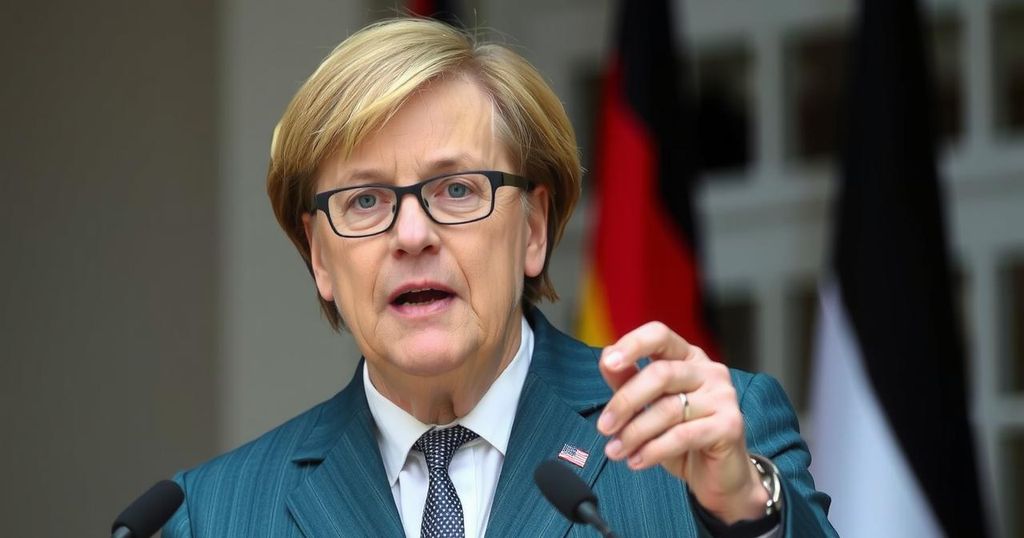Early Elections in Germany Set for February 23 Following Government Collapse

German President Frank-Walter Steinmeier has dissolved parliament, scheduling early elections for February 23 after Chancellor Olaf Scholz’s coalition government collapsed amid economic strife and a recent security incident. The elections are expected to feature strong competition from the CDU/CSU and the far-right AfD, with calls for a respectful and fair campaign amid rising tensions on crucial issues.
On February 23, Germany will hold early elections following the dissolution of parliament by President Frank-Walter Steinmeier. This political upheaval arose from the collapse of Chancellor Olaf Scholz’s coalition government amid internal discord regarding the revival of the nation’s economy. The tragic car-ramming incident at a Christmas market has intensified the discourse on security and immigration issues, prompting Steinmeier to call for a respectful electoral campaign. The arrest of a suspect with alleged extremist views adds to the urgency of these debates.
The main competition in the upcoming elections appears to be between the conservative CDU/CSU alliance and the far-right Alternative for Germany (AfD), both of whom have been gaining momentum in polls. CDU/CSU currently leads with approximately 32 percent of the vote, while the AfD follows at 19 percent. Meanwhile, Scholz’s coalition, comprising the Social Democrats, is polling significantly lower at 15 percent. President Steinmeier emphasized the importance of transparency in campaigning and cautioned against foreign interference and hate speech fueling the electoral process.
In his address, Steinmeier highlighted the profound challenges the next government will need to confront, including economic instability, international conflicts in the Middle East and Ukraine, and pressing debates surrounding immigration and climate change. Both major parties support continued aid for Ukraine and are committed to increasing defense spending, yet diverge on strategies for addressing Germany’s economic woes and climate policies. The aftermath of the election remains to be seen, with Scholz maintaining a caretaker role until a new government is established.
Germany’s present political landscape has shifted dramatically following the collapse of Olaf Scholz’s coalition government, a scenario exacerbated by a recent attack that has reignited discussions on national security and immigration. The decision by President Steinmeier to call early elections reflects a necessity for political stability as Germany faces multiple pressing challenges. Current polling indicates a shift in voter sentiment towards conservative and far-right parties, reflecting an electorate concerned with both economic recovery and security issues. The election process will be keenly observed as political parties position themselves amid these complex issues, impacting not only national policy but also Germany’s role in European and global affairs.
In summary, Germany is poised for a significant political shift with early elections scheduled for February 23, following the dissolution of parliament by President Steinmeier. The collapse of the Scholz government amid division over economic strategies and heightened security concerns illustrates the fragile state of German politics. As the country navigates this turbulent landscape, the upcoming election will serve as a critical juncture for voters seeking solutions to pressing issues, including security, immigration, and economic revitalization.
Original Source: www.rfi.fr








